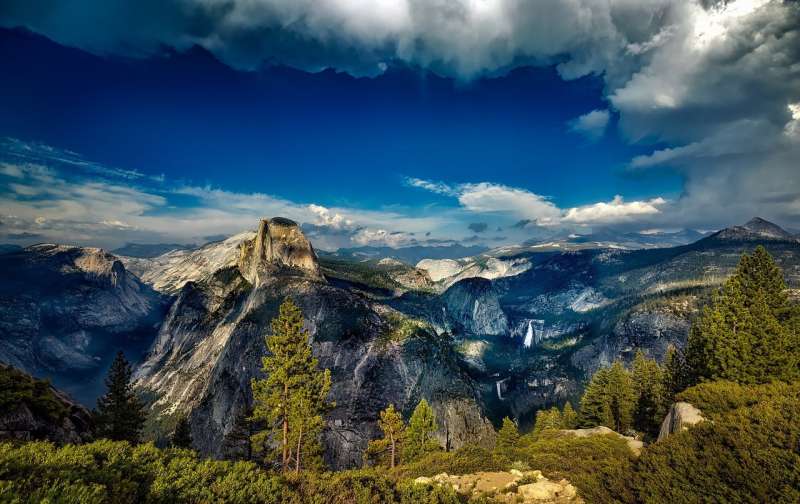Pollution is a 'significant' problem at 401 national parks, report says

More than 96% of national parks assessed in a recent report are "plagued by significant air pollution problems," and some of California's most iconic parks are among the most troubled, according to one of the nation's largest nonprofit conservation associations.
The National Parks Conservation Association said in its May "Polluted Parks" report that 401 of 417 national parks that were looked at suffered from air pollution-related problems in at least one of four areas: climate change, damage to nature, visibility and air that is unhealthy to breathe.
That report noted that in 2018, four California parks—Sequoia, Kings Canyon and Joshua Tree national parks, and Mojave National Preserve—measured "unhealthy" air conditions for visitors and park rangers more than two months out of the year. The worst days are usually in the summer.
"Much of the air pollution in these parks comes from vehicles and the agriculture industry in the San Joaquin Valley—one of the most polluted areas in the nation—where residents are frequently exposed to unsafe air," the report reads.
Unhealthy air was measured in NPCA's report in terms of high ozone levels. Air pollution at those four California parks is at times worse than that found in cities like Los Angeles and Houston, the report claims.
Sequoia and Kings Canyon got an F grade in healthy air in a 2015 pollution report by NPCA, which ranked them tied for the No. 1 most air-polluted national park.
The report claims that temperatures at national parks are rising at double the rate of the U.S. as a whole, "threatening the very existence of namesake features at Glacier, Joshua Tree and Saguaro National Parks."
Climate change, the report says, is "intensifying flooding, drought and wildfires." All three of which have had an especially large presence in California over the past decade.
NPCA's report also alludes to hazy skies at Yosemite and Sequoia National Park, the latter of which frequently sees days where visibility is cut down by 90 miles due to air pollution.
The study says unhealthy air is a "significant" problem at 85% of the 417 parks monitored; harm to nature at 88%; hazy skies at 89%; and climate change at 80%.
In proposing possible solutions for these issues, the report sharply criticizes Trump administration environmental policies for reversing progress made by the Clean Air Act, first implemented in 1963.
"The Trump administration has grossly limited public process and environmental review of new oil and gas leases while fast-tracking development proposals, including one from the Bureau of Land Management in California that would open 1.6 million new acres to drilling."
The recent BLM plan in question could have an impact at Yosemite, Sequoia and Kings Canyon national parks, the Santa Monica Mountains National Recreation Area and other California parks, NPCA says.
NPCA is a nonpartisan advocacy group on behalf of national parks, with more than 1.3 million members and supporters, according to its website.
NPCA's Polluted Parks report is subtitled, "How America is Failing to Protect Our National Parks, People and Planet from Air Pollution." Its final section notes that solutions currently being implemented include a number of pilot programs, including Yosemite's Zero Landfill Initiative, an effort to significantly reduce landfill waste.
The data used in the report comes from the National Park Service and Environmental Protection Agency.
©2019 The Sacramento Bee (Sacramento, Calif.)
Distributed by Tribune Content Agency, LLC.



















